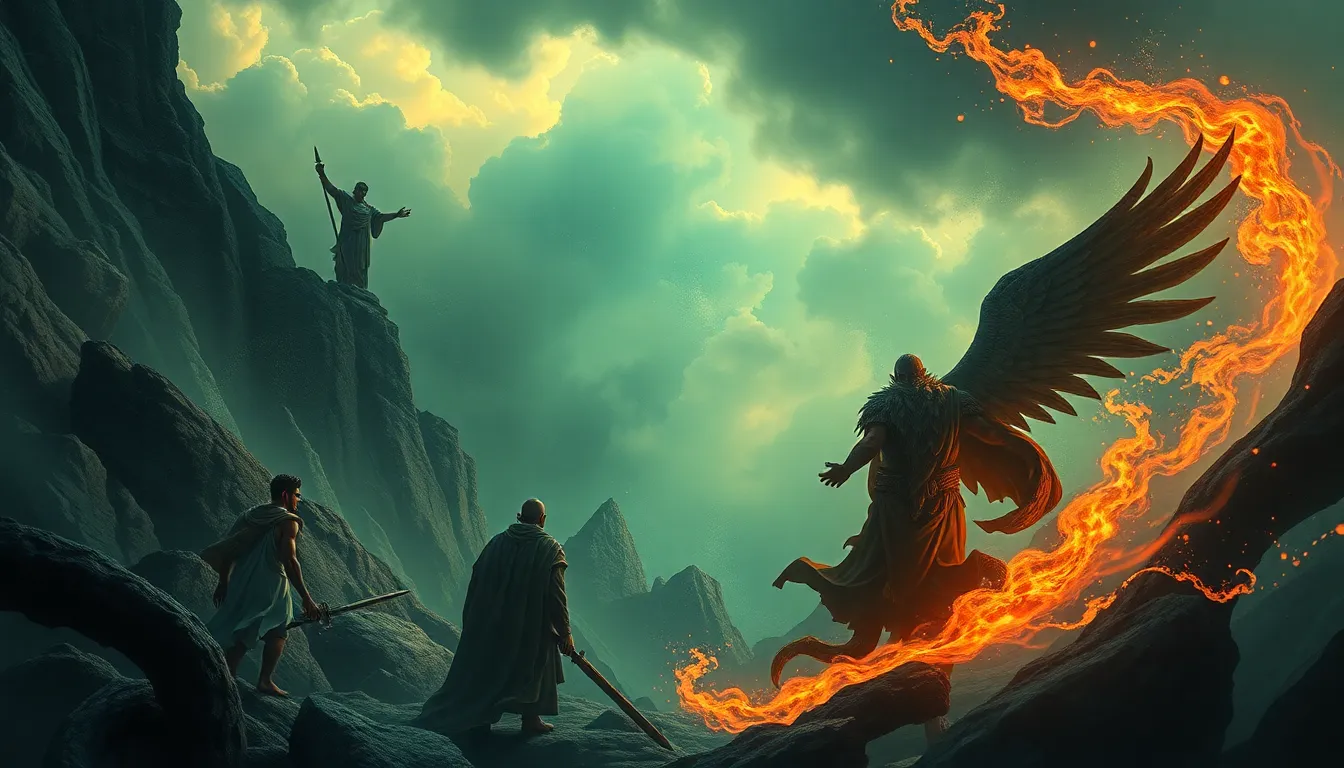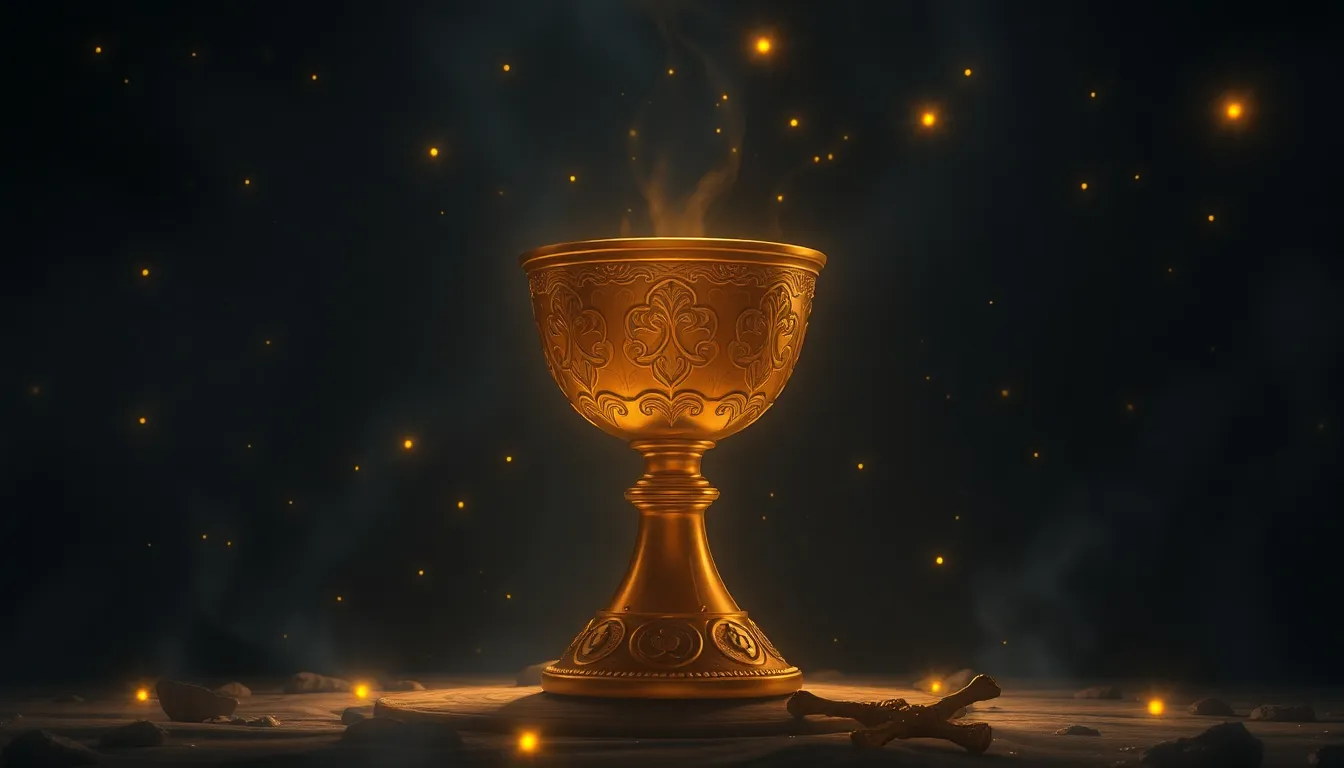The Most Intriguing Ancient Deities: Legends That Challenge Beliefs
Introduction
Throughout history, ancient deities have played a significant role in the lives of people across various cultures. These divine beings not only represent the beliefs and values of their respective societies, but they also shape their myths, legends, and traditions. The study of these deities provides insight into the human experience, revealing how ancient cultures understood the world around them, morality, and the nature of existence itself.
Mythology serves as a lens through which we can explore these ancient beliefs, illuminating the complexities of life, death, and the human condition. As we delve into the world of ancient deities, we uncover narratives that challenge conventional beliefs and provoke thought about the nature of divinity and humanity.
The Enigmatic Nature of Deities
Ancient deities are often characterized by their complexity and multifaceted nature. They embody a range of attributes and powers, reflecting both positive and negative traits.
- Definition: Deities are supernatural beings worshipped as controlling forces of nature and human destiny.
- Characteristics: They often possess human-like qualities, including emotions, desires, and flaws.
- Complexity: Many deities can embody dualities, such as creation and destruction, love and hatred.
This enigmatic nature of deities presents a rich tapestry of beliefs that transcend simple moral dichotomies, inviting deeper contemplation on the nature of good and evil.
Prominent Deities from Various Cultures
Across the globe, deities represent the diverse beliefs and values of their cultures. Here are some key figures from major mythological traditions:
Greek Mythology
- Zeus: The king of the gods, embodying authority, justice, and power.
- Athena: Goddess of wisdom and warfare, symbolizing intelligence and strategy.
Egyptian Mythology
- Osiris: God of the afterlife, representing resurrection and eternal life.
- Isis: Goddess of magic and motherhood, revered for her nurturing qualities.
Norse Mythology
- Odin: The All-Father, known for his wisdom and sacrifice.
- Freya: Goddess of love and war, embodying beauty and ferocity.
Hindu Mythology
- Brahma: The creator god, representing the cycle of creation.
- Shiva: The destroyer, symbolizing transformation and regeneration.
These deities, while unique to their cultures, share common themes of power, morality, and the human experience, highlighting the interconnectedness of mythological traditions.
Legends That Challenge Conventional Beliefs
Many myths contain narratives that challenge mainstream religious beliefs, often presenting deities in unconventional roles. One such example is the story of Prometheus from Greek mythology.
- Prometheus: A Titan who defied the gods by stealing fire and giving it to humanity, symbolizing rebellion against divine authority and the pursuit of knowledge.
- Lilith: In Jewish folklore, she is often depicted as Adam’s first wife who refused to submit to him, representing female autonomy and challenging traditional gender roles.
These legends prompt reflection on the nature of authority, rebellion, and the human condition, encouraging individuals to question established beliefs.
The Role of Deities in Moral and Ethical Frameworks
Ancient deities have significantly influenced moral teachings and ethical standards within their cultures. They often serve as exemplars of virtue or cautionary figures that embody moral lessons.
- Influence on Morality: Deities like Athena promote wisdom and justice, while figures like Loki in Norse mythology illustrate the consequences of deceit and chaos.
- Conflicting Morals: Different cultures may present diverse moral standards through their deities, leading to varying interpretations of right and wrong.
This complexity presents a rich field for exploring how ancient beliefs shaped societal norms and ethical frameworks.
The Psychological and Sociological Impact of Deities
Ancient deities often mirror human psychology and societal fears, reflecting the values, struggles, and aspirations of the people who worshipped them.
- Human Psychology: Deities can embody human emotions and desires, allowing individuals to relate to them on a personal level.
- Social Control: The worship of deities can serve to maintain order and cohesion within societies, providing a framework for community values and behaviors.
By understanding the psychological and sociological roles of these deities, we gain insight into the human experience and the collective consciousness of ancient cultures.
The Evolution of Deity Worship
The worship of ancient deities has evolved significantly over time, reflecting historical shifts in cultural beliefs and practices.
- Historical Shifts: The transition from polytheism to monotheism in many cultures marked a profound change in religious practices and beliefs.
- Implications: This shift often led to the consolidation of power within religious institutions and changes in societal structures.
Studying these transitions helps us understand how and why certain beliefs persisted or changed over time, shaping the world we live in today.
Modern Interpretations and Relevance
In contemporary society, ancient deities continue to capture the imagination, often reinterpreted or revived in various cultural contexts.
- Neo-Pagan Movements: These modern practices seek to revive ancient beliefs and rituals, highlighting a renewed interest in mythology.
- Contemporary Art and Literature: Ancient deities frequently appear in modern storytelling, providing a means to explore complex themes and human emotions.
This ongoing engagement with ancient deities underscores their relevance in understanding modern human experiences and cultural expressions.
Cultural Artifacts and Their Stories
Archaeological discoveries related to ancient deities provide invaluable insights into past beliefs and practices.
- Artifacts: Statues, inscriptions, and temples reveal the significance of deities in daily life and religious practices.
- Significance: These artifacts help us piece together the narratives surrounding deities, enhancing our understanding of ancient cultures.
Through these findings, we can better appreciate the complexities of ancient belief systems and their lasting impact on future generations.
Conclusion: Reflecting on the Legacy of Ancient Deities
The enduring impact of ancient deities on modern belief systems is a testament to their significance in shaping human culture and thought. As we explore these legends and the complexities of these divine beings, we gain valuable insights into human nature, morality, and societal norms.
In studying these ancient deities, we not only uncover the rich tapestry of mythological traditions but also reflect on our own beliefs and values. The stories of these deities continue to resonate, inviting us to ponder the deeper questions of existence and the human experience, reminding us of the timeless quest for understanding and meaning.




